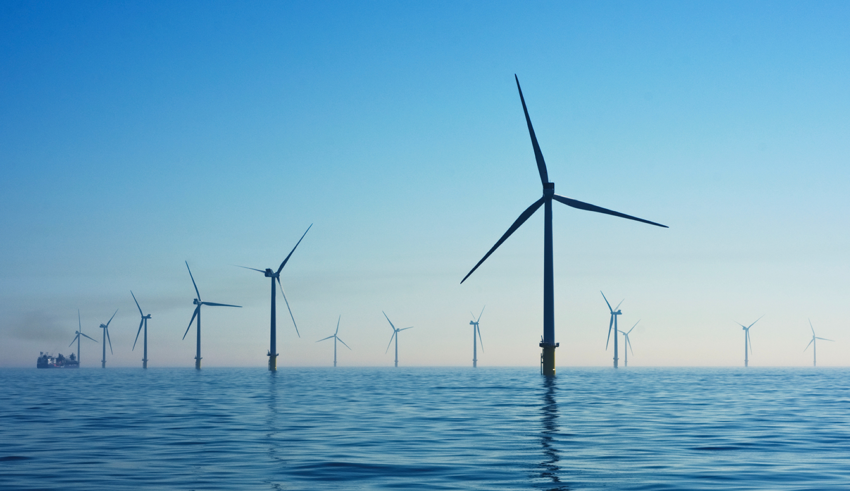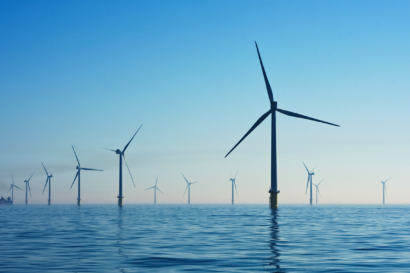PRESS RELEASES | 22/09/2022
Tackling cost of living and energy crises requires keeping UK economy on track for net zero

Today, the Aldersgate Group launches its manifesto for the new Prime Minister and her government: The green line: a route out of crisis and towards prosperity. This publication draws upon the extensive expertise of the Aldersgate Group’s business membership[1] to outline how ambitious climate and environmental policies can help solve the energy and cost of living crises, and drive much needed investment and job creation across a range of economic sectors and regions.
The report also considers how the UK can build a globally competitive low carbon economy that is far more resilient to extreme weather events driven by climate change. It outlines priority recommendations for the next two years in areas including energy efficiency, energy supply, electricity market reform, nature restoration and climate adaptation, resource efficiency, green finance, skills, trade and climate diplomacy.
~ The key findings of the briefing will be discussed at a launch webinar on Friday 30 September from 9.30am featuring senior speakers from Bank of America, National Grid, Octopus Energy and Energy Saving Trust.[2] ~
In addition to the immediate support provided to households and businesses to cope with high energy costs, it is essential that the government responds to the current crisis by improving the long-term resilience of the UK’s energy system to ensure the UK is less exposed to geopolitical risks and volatile fossil fuel prices. To bolster energy security and lower bills in the long run, this Aldersgate Group manifesto calls on the government to pursue a twin track approach of reducing dependence on fossil fuels through accelerated investment in low cost, clean and homegrown renewables, and lowering energy demand across the economy through a nationwide energy efficiency retrofit programme, most urgently in homes and commercial buildings.
The economic benefits of pursuing this strategy are clear – in 2021, renewables generated just under 40% of the electricity in the UK, with 29% coming from wind and solar.[3] This displaced around £6.1bn worth of gas, saving the equivalent of £221 of gas per household per year.[4] With the cost of renewables falling with greater levels of deployment, they provide the UK with a key opportunity to bolster energy security in a cost-effective way.
When it comes to accelerating progress on energy efficiency, research shows that households living in homes rated below the government’s target Energy Performance Certificate (EPC) C rating are set to pay £748 more on average per year for their energy than the 10 million living in homes at or above the threshold.[5] Homes with poorer insulation also tend to be clustered in areas such as Wales, Yorkshire & the Humber and the West Midlands, where levels of poverty are higher than the UK average, clearly showing the economic and levelling up benefits that a mass home insulation programme can bring.
Beyond the energy sector, the UK is already seeing the economic benefits of the net zero transition. In 2020, businesses in low carbon sectors generated £41.2bn in turnover, directly employing 207,800 full-time equivalent employees[6] and rising to half a million when people employed in associated supply chains are included.[7] Low carbon investment is also helping to level up the country, with jobs in sectors like offshore wind, low carbon hydrogen, EV chargepoint installation and home insulation distributed across the UK. By continuing to develop supportive low carbon policies across key industrial sectors under the Net Zero Strategy, the Government could significantly increase these economic benefits. For example, a low carbon hydrogen sector in the North-West could see the creation of 5,000 new jobs; CCS could deliver 5,500 jobs in the Teesside by 2025 and 18,000 jobs nationally by 2030;[8] the transition to EVs could create 200,000 permanent jobs across the UK, with 57% coming from the installation, operation and maintenance of chargepoints.[9]
Recent extreme weather events have demonstrated that investment in natural capital restoration should also be a key priority for the new government to mitigate the impact of droughts and floods, and safeguard food security by incentivising more sustainable agricultural practices. The value provided by coastal wetlands in terms of buffering the effects of storms and flood control has been estimated at £1.5bn annually[10] and reversing soil degradation could save £1.2bn per year in England and Wales.[11] Continuing the implementation of the Environment Act and developing an ambitious Environmental Improvement Plan will thus be essential. Working with the UK Infrastructure Bank is critical to continue developing investable propositions that improve the state of nature.
Nick Molho, Executive Director of the Aldersgate Group said: “There is clear business consensus that ambitious climate and environmental policies are a key part of the answer when it comes to providing durable solutions to the cost of living and energy security crises and tackling low levels of investment in infrastructure. All these agendas are mutually reinforcing. By introducing policies that will genuinely put the UK on track for its legally binding net zero and nature restoration targets, Liz Truss and her government can unlock significant business investment in low carbon innovation, infrastructure and job creation across the country and across multiple sectors of the economy from renewables, insulation and grid infrastructure through to heavy industry and nature restoration projects.”
Key recommendations
The report makes a range of recommendations across energy policy, buildings, transport, heavy industry, resource efficiency, nature restoration, skills, green finance, trade and global climate policy. Key recommendations include:
Addressing the energy crisis
- Make energy efficiency in homes and infrastructure a priority to slash bills, improve energy security and create jobs,[12] tackling both heating and cooling.
- Build on progress to date on low carbon power generation and ensure the swift delivery of key infrastructure to lower bills.
- Use the Energy Bill and the Review of Electricity Market Arrangements (REMA) to explore the best way to decouple gas and electricity prices, and unleash the capability for UK renewables to deliver lower bills for industry and households.
Driving innovation, investment and job creation
- Accelerate the implementation of the Net Zero Strategy – through key policy interventions in areas such as power, buildings, transport and heavy industry – to provide the right market signals and boost investor certainty.
- Supplement the implementation of sectoral strategies with targeted interventions through the UK Infrastructure Bank (UKIB) to crowd in private investment into key sectors, rectifying market failures in areas like energy efficiency and de-risking investment in technologies like hydrogen and CCS.
- Build on the recommendations from the Green Jobs Taskforce to develop a clear strategy for low carbon skills for the current and future workforce to maximise job creation over the net zero transition.
- Complete the development of a comprehensive, practical and ambitious green finance reporting and disclosure regime to improve the quality and consistency of information available to investors and support the private sector to grow capital flows towards low carbon infrastructure, goods and services. This should include implementing the new Sustainability Disclosures Regime, completing ongoing work to introduce sustainable investment definitions under a UK Green Taxonomy and supporting the effective implementation of net zero transition plans.”
Accelerating investment in nature restoration, resource efficiency and climate resilience
- Support nature restoration and accelerate natural capital investment by strengthening and finalising the proposed targets under the Environment Act and putting in place a comprehensive first Environmental Improvement Plan.
- Maintain and fully implement the Environmental Land Management Schemes (ELMS) to incentivise better agricultural practices, improve crop yields and boost domestic food security.
- Implement the 2018 Resources and Waste Strategy to accelerate the transition to a more circular economy, increase the UK’s resource security and reduce exposure to volatile commodity prices and supply chain disruptions.
Global green Britain
- Use the greater policy flexibility provided by the UK’s departure from the EU to put in place ambitious smart regulations that can maximise investment in low carbon goods, services and technologies and make the UK one of the most attractive places globally to invest in the low carbon economy.
- Support the COP27 presidency in delivering the key pledges made in Glasgow and support the COP CBD 15 negotiations to deliver the equivalent of the Paris Agreement for biodiversity and nature restoration.
- Align trade and climate objectives by taking steps to maximise low carbon export opportunities, prevent carbon leakage, protect the UK’s right to regulate, and foster international cooperation on decarbonisation and nature restoration.
Henrik Pedersen, CEO, ABP: “This Aldersgate Group Manifesto clearly sets out how the transition to a net zero economy can be achieved in a way that delivers energy security and drives economic growth and job creation across the UK. As the UK’s leading ports group ABP has a critical role to play in the UK’s energy transition, helping to accelerate the decarbonisation of energy generation, industry, transport and logistics. From offshore wind and floating offshore wind to the at-scale development of hydrogen production and carbon capture and storage technology, our ports are also laying the foundations for new industries that are key to economic growth and regeneration in coastal communities around the country.”
Adam Whitmore, Principal Policy Advisor at Bellona: “Smart, well-targeted investment in energy efficiency, renewables and other low carbon technologies, alongside developing necessary skills and supply chains, can be a win-win-win-win for consumers, the economy, energy security and the climate. This manifesto sets out specific steps we need to take to find a better route out of the current crisis and towards a more prosperous future. It should be warmly welcomed.”
Philip Sellwood, Consultant at Energy Saving Trust: “The Aldersgate Group Manifesto published today makes clear the priority the new government must place on making energy efficiency a national infrastructure objective which will reduce customers bills in both the short and long term. Combined with further major investment in renewable generation this will deliver enhanced energy security whilst driving economic growth and climate resilience”
James Mansfield, Co-founder and Managing Director at Finance Earth: “We need urgent policy and action not only to deliver on the UK’s net zero and nature positive commitments but for the health and resilience of our economy and society. Investing in natural capital and ensuring that finance works for nature, climate and society will underpin economic growth and long-term prosperity for all. Government policy and support must help mobilise private finance for public good.”
Kaley Hart, Executive Director at IEEP UK: “The new UK government takes office at a time of multiple, interlocking crises. The Aldersgate Group’s Green Line manifesto calls for an accelerated, net zero-led response, providing multiple, complementary benefits for society and nature. At IEEP UK, we agree such a strategy could be central to delivering on the government’s own stated green pledges and look forward to supporting the UK’s green transition through evidence-based research and policy engagement.”
Nick Lakin, Group Director of Corporate Affairs at Kingfisher: “Businesses can only do so much without the right enabling framework to re-energise and transform our economy so that we stay on track for net zero. At Kingfisher, we have our own net zero targets as well as plans to significantly increase the proportion of products that help our customers afford to have greener, healthier homes. A long-term energy efficiency programme for homes with good financing and tax incentives, more support to help everyone switch to electric vehicles, alongside actions such as the recent decision to ban the sale of peat for gardeners are all vital steps in ensuring that the UK meets its net zero objectives.”
Philippa Spence, Managing Director at Ramboll UK: “With the new Prime Minister in post, the Government needs to regain momentum in addressing the climate emergency, not just in response to the latest IPCC report identifying we have options in all sectors to at least halve emissions by 2030, but to support the UK population amid the cost of living crisis. We need decisive action that will bring about energy and food security, and resilience to extreme weather events that we are increasingly experiencing.”
Colin Skellett, Chief Executive at Wessex Water: “Wessex Water welcomes the Aldersgate Group’s manifesto. With the right enablers in place, the private sector can deliver the investment needed to decarbonise the economy, restore nature and for the new Prime Minister’s growth agenda. The current regulatory framework fails because it is fragmented across sectors, output not outcome focused, and overly prescriptive. With a fresh approach, the Environment Act could drive private investment and deliver the outcomes that consumers want for lower private and social cost, helping to address the cost-of-living crisis.”
Julia Barrett, Chief Sustainability Officer at Willmott Dixon: “We warmly welcome the Aldersgate Group’s briefing to the new Prime Minister highlighting that delivering net zero is key to solving the energy crisis and revitalising the UK economy. Using a variety of market mechanisms to make energy efficiency in homes and buildings a priority can accelerate just transition to net zero for all as well as supporting levelling up across the UK.”
Dr Darren Moorcroft, CEO at Woodland Trust: “The Prime Minister should seek to build on the UK’s international leadership on the environment with bold action at home building on her welcome commitments to sticking with our net zero targets and attending COP 15. Domestic leadership means moving swiftly to implement the CCC’s recommendations, proceeding with the Environmental Land Management scheme with renewed purpose, making good on the government’s commitments around protection of irreplaceable habitats like our ancient woods and trees. She will find that native woods and trees are an indispensable value for money ally in delivering on a wide range of government agendas as well as a great unifier with the ability to bring together communities and businesses, NGOs and government to harness their potential.”
Mark Hurley, Managing Director for Water, Energy & Industry at WSP, said: “WSP is pleased to support this manifesto which sets out on behalf of businesses clear priorities for the Prime Minister to drive sustainable economic growth. Securing the future of the UK’s energy supply is an urgent priority, and must go hand in hand with decarbonising our economy at what is a critical juncture for our net zero commitments. In tackling the climate and biodiversity crises focused investment in renewable energy sources is an important part of building for a resilient future. Investment in our critical infrastructure in key sectors will create jobs, enable economic growth and support more sustainable communities. Businesses stand ready to act faster and do more, bolstered by strong leadership from government.”
[1] https://www.aldersgategroup.org.uk/membership/organisations/
[2] https://www.aldersgategroup.org.uk/events/post/the-green-line-a-route-out-of-crisis-and-towards-prosperity-launching-the-aldersgate-groups-manifesto/?origin=/upcoming-events/
[3] Department of Business, Energy and Industrial Strategy (June 2022) Energy Trends
[4] UK Onward (2022) Renewed Importance: How investing in renewables cuts energy bills
[5] Kingfisher, OnePoll, CEBR (August 2022) Tackling the UK’s energy efficiency gap
[6] ONS (February 2022), UK Low carbon and renewable energy economy, UK: 2020
[7] Energy & Climate Intelligence Unit (2022) Net zero: economy and jobs
[8] https://www.netzeroteesside.co.uk/wp-content/uploads/2020/06/20200508_NZT_Economic_Benefits_Report_Edited_Clean_web.pdf
[9] AIE (November 2018) Powering a new value chain in the automotive sector: the job potential of transport electrification
[10] HM Government (June 2011) The Natural Choice: securing the value of nature
[11] Cranfield University (2015) The Total Costs of Soils Degradation in England and Wales
[12] According to the Construction Industry Training Board (CITB), improving the building fabric energy efficiency of every building in the country in need of retrofit will require 12,000 workers to be trained every year for about the next four years, before the need to ramp up annual recruitment by up to 30,000 workers between years 2025 and 2030. This implies an increased trained workforce of up to 230,000 by the end of the decade. CITB (2021) – Building skills for net zero


